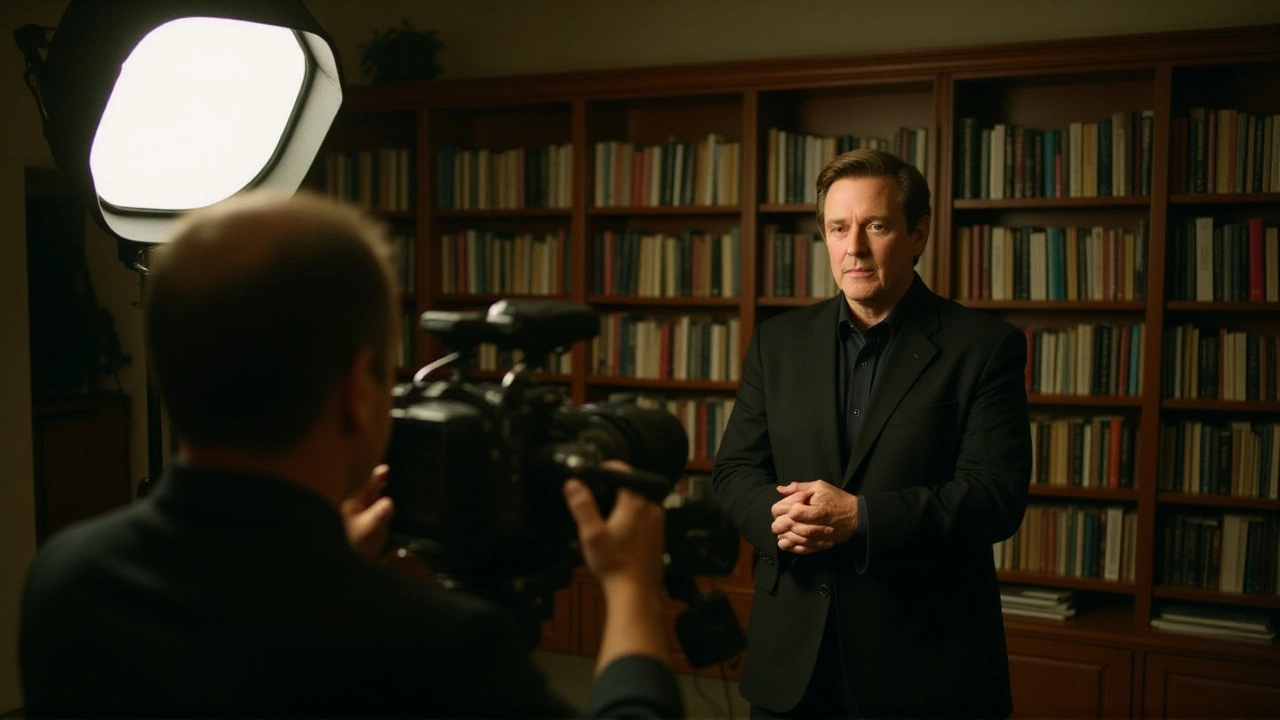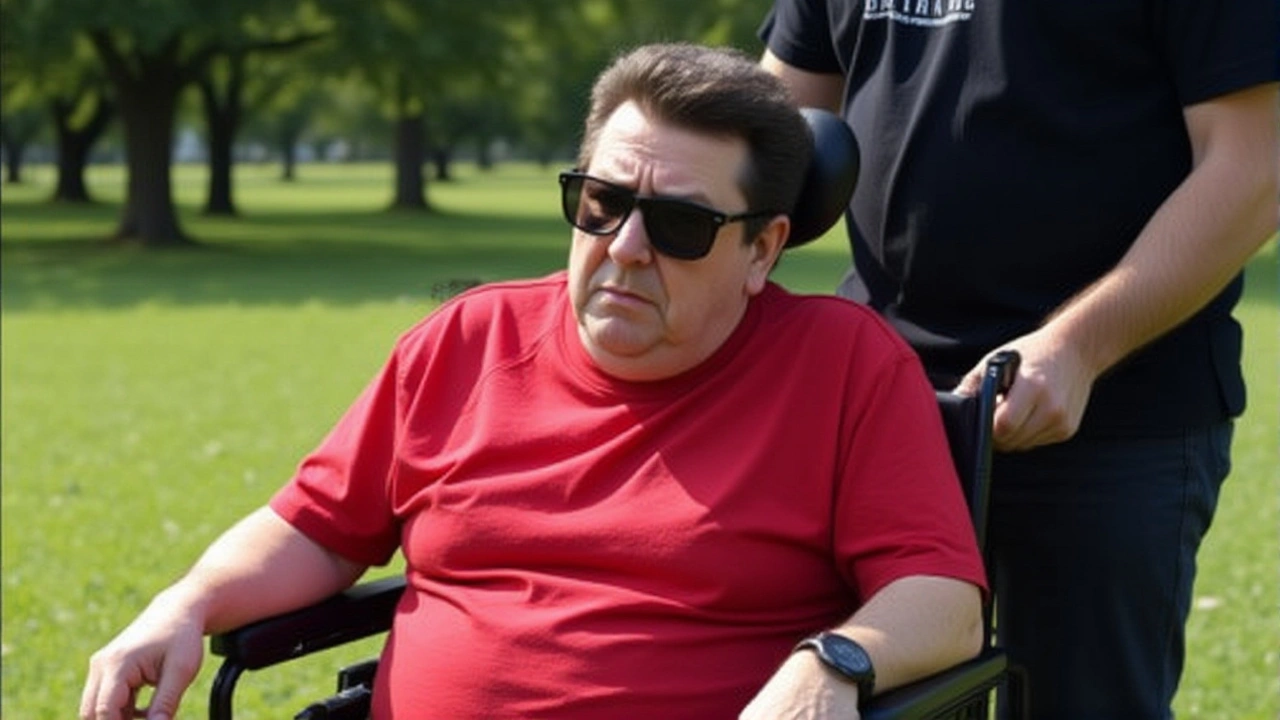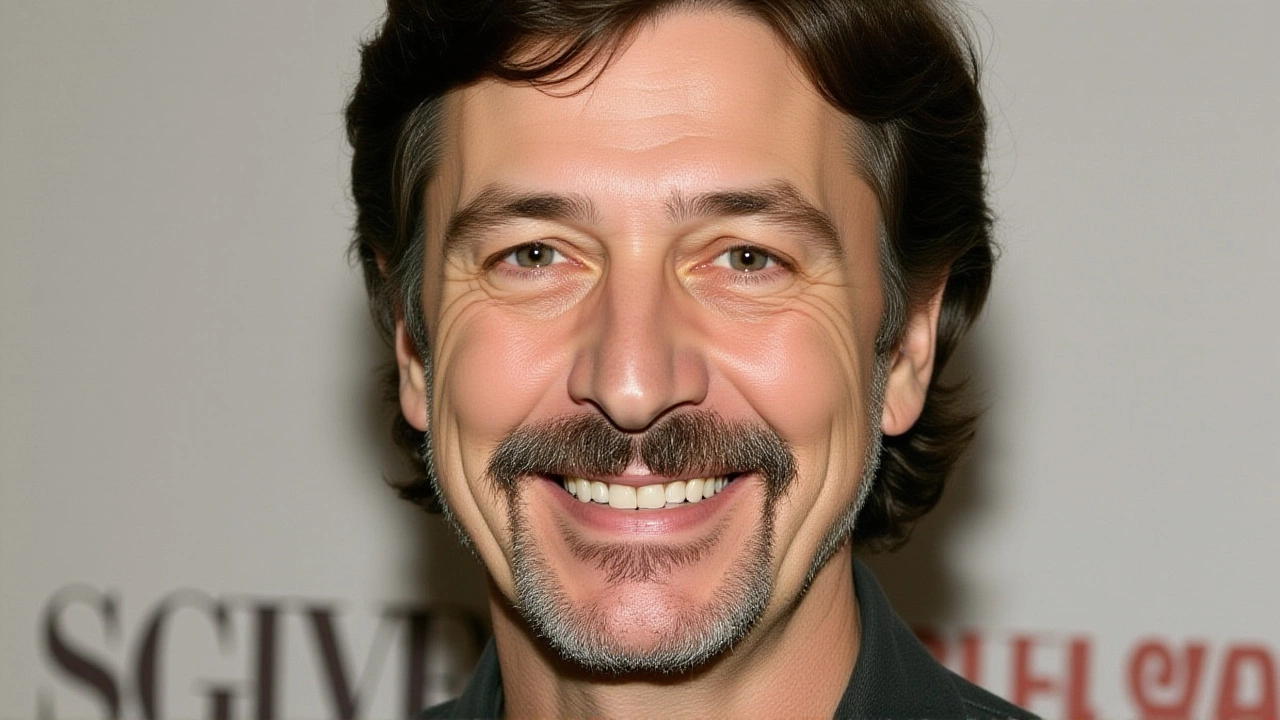When Tim Curry, actor stepped onto the stage at the Academy Museum on September 26, 2025, fans expected a nostalgic sing‑along to his legendary Dr. Frank‑N‑Furter. Instead, Curry gave a raw update on his health, telling the crowd, “I still can’t walk, which is why I’m in this silly chair, and that’s very limiting.” The admission, made during the 50th‑anniversary celebration of The Rocky Horror Picture ShowLos Angeles, marks the most detailed public comment on his condition since the near‑fatal stroke that struck him in July 2012.
Historical context: From cult icon to stroke survivor
Back in 1975, the then‑28‑year‑old Curry exploded onto the scene with a performance that made The Rocky Horror Picture Show a midnight‑movie staple. Over the decades he added voice‑over work, Broadway credits and a reputation as a versatile character actor. Yet on a rainy July night in 2012, the star’s life took a dramatic turn. A sudden weakness on his left side, slurred speech and a pounding headache signaled a massive ischemic stroke. He was rushed to a hospital in London, where doctors administered clot‑dissolving medication and began an intensive rehab program.
The event stayed under wraps until early 2013, when Curry’s agent, Simon Gaffury, told The Daily Mail, “Tim is doing great. He absolutely can speak and is recovering at this time and in great humour.” In reality, the actor emerged with partial paralysis, especially in his left leg, and ongoing speech challenges that forced him into a wheelchair for the first time in his career.
Details of the September 26 announcement
During the Rocky Horror screening, Curry, seated in a motor‑assisted chair, addressed the audience directly. “I won’t be singing and I won’t be dancing very soon,” he said, a wry nod to the film’s musical numbers. He added, “I still have real problems with my left leg.” The quote, reported by The Hollywood Reporter, was met with a hushed applause, underscoring how rare it is to hear the star discuss his day‑to‑day limitations.
Medical experts note that post‑stroke recovery can plateau after several years, especially when a major artery is damaged. Curry’s rehabilitation regimen reportedly includes three weekly physical‑therapy sessions, aquatic exercises, and regular speech‑pathology appointments. While he can speak clearly now, fine‑motor control in his left foot remains a daily hurdle.
Reactions from peers, fans, and organizations
Industry veterans rallied on social media. Meryl Streep posted, “Your courage lights up the room, Tim. Thank you for sharing honestly.” The Actors Fund, which awarded Curry a Lifetime Achievement Award in 2022, issued a statement praising his resilience and reminding fans of the fund’s role in supporting artists facing health crises.
Fans gathered outside the museum, holding signs that read “We love you, Tim” and “Keep fighting, Frank‑N‑Furter.” For many, the event was a poignant reminder that beloved legends are still human, prone to the same struggles as anyone else.

Impact and expert analysis
Dr. Lisa Hammond, a neurologist at UCLA Health, explained, “Curry’s openness can destigmatize long‑term disability in the entertainment industry. It also highlights the need for ongoing access to specialized rehab services for aging performers.”
From a cultural standpoint, the actor’s candidness may influence how studios handle health disclosures for aging stars. Historically, Hollywood has often downplayed serious illnesses to preserve marketability. Curry’s frank admission could encourage a more transparent dialogue.
What’s next for Curry?
In the months ahead, Curry plans to attend the Tony Awards Viewing Party in Los Angeles, a modest gathering where he will receive a standing ovation from fellow theater veterans. He also hinted at a possible voice‑over project, noting that his vocal work “doesn’t demand a full‑body performance.”
While a full return to on‑stage dancing remains unlikely, Curry’s team says he continues to explore adaptive technologies, such as smart‑wheelchair controls that sync with speech commands, offering a glimpse of how future mobility aids could empower performers with similar limitations.
Background: The ripple effects of Curry’s 2012 stroke
Beyond Curry’s personal journey, his 2012 stroke sparked broader conversations about stroke awareness among entertainers. After the incident, several high‑profile actors, including Neil Patrick Harris, have partnered with the American Stroke Association to promote early‑warning signs. The movement has led to increased funding for research into neuro‑rehabilitation, a sector that benefitted from Curry’s own advocacy through charity galas.
Moreover, Curry’s case underscored the importance of regular cardiovascular screenings for artists whose schedules often involve erratic sleep, travel, and high stress. Industry unions have since lobbied for mandatory health‑check provisions in contracts—an effort still awaiting full adoption.

Frequently Asked Questions
How does Tim Curry’s health update affect his future performances?
Curry indicated he won’t be singing or dancing anytime soon, which suggests any on‑stage roles will be limited to non‑physical parts. However, he remains open to voice‑over work and cameo appearances that don’t require extensive movement.
What rehabilitation methods is Curry using to manage his left‑leg weakness?
His routine includes three weekly physical‑therapy sessions focusing on strength and balance, aquatic therapy for low‑impact movement, and regular speech‑pathology visits to maintain vocal clarity. He also employs a motor‑assisted wheelchair with customizable controls.
Why was the stroke not disclosed until 2013?
Curry’s representatives chose to keep the incident private to allow him and his family time to focus on recovery without media pressure. The public announcement came after a year of intensive rehab when he was medically cleared to discuss his condition.
What role did the Actors Fund play in Curry’s recovery?
The Actors Fund provided financial assistance for specialized therapy and helped coordinate care teams. Their support allowed Curry to access cutting‑edge rehabilitation services that might otherwise be out of reach for many performers.
Will Curry’s revelation influence other veteran actors to speak about health issues?
Industry analysts believe Curry’s openness could encourage peers to share their own health journeys, fostering a more supportive environment and potentially prompting studios to adopt better health‑care provisions for aging talent.
